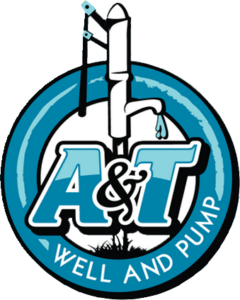Our team specializes in comprehensive well maintenance services. With our expertise and attention to detail,…
Water is an essential resource for our daily lives, and the quality of the water we consume is crucial for our health and well-being. Unfortunately, well water, which many people rely on as their primary source of drinking water, can be contaminated with various pollutants that can pose serious health risks. For this reason, it's essential to take measures to understand how to improve well water quality.
At A&T Well Pumps, our are happy to help you explore the different ways you can improve the quality of your well water. From identifying the contaminants in your water to implementing treatment options and preventative measures, these tips for how to improve well water quality will enable you to ensure that the water you and your family drink is safe and of the highest possible quality.
Why is Well Water Quality Important?
Well water quality is important for several reasons, with the first and most essential being that clean and safe drinking water is crucial for maintaining good health. Contaminants in well water can cause a variety of health problems ranging from mild to severe, including gastrointestinal illness, reproductive problems, and even cancer.
Well water is often used for household chores, such as bathing, cooking, and cleaning, so it's important to ensure that the water is free from harmful contaminants to protect the health of everyone in your household. Additionally, poor well water quality can have a negative impact on the taste, odor, and appearance of water, which can affect its usability and even reduce property values. Therefore, ensuring the quality of your well water is essential for maintaining a healthy and comfortable home.
Signs Your Well Water is Contaminated
Well water contamination can be a serious health risk, and it's important to be able to recognize the signs of contaminated well water.
- Foul odor: If your well water smells like rotten eggs, it could be a sign of sulfur or bacteria contamination.
- Discoloration: Discoloration in your well water can be a sign of various contaminants. For example, yellow or brown water can indicate iron or manganese contamination, while blue-green water can indicate copper or other metal contamination.
- Metallic taste: A metallic taste in your well water can indicate the presence of iron, manganese, or copper.
- Cloudiness: Cloudy well water can be a sign of sediment or bacterial contamination.
- Gastrointestinal Issues: If you experience frequent diarrhea, nausea, or vomiting after consuming well water, it could be a sign of bacterial contamination.
- Skin irritation: Skin irritation or rashes after bathing or showering with well water can be a sign of high levels of minerals like iron or manganese.
- Contaminants are visible: If you notice the presence of contaminants like sand, sediment, or other particles in your well water, it could be a sign of well system issues or contamination.
If you notice any of these signs, it's important to to determine the cause of the contamination and take the necessary steps to improve well water quality.
How to Prevent Well Water Contamination
Here are some tips to help prevent in order to ensure your well water quality is good:
- Proper well construction: Proper well construction is critical in preventing contamination. Your well should be constructed with materials that are resistant to corrosion and degradation and should be located away from potential sources of contamination like septic tanks, livestock pens, or chemical storage areas.
- Regular maintenance: Regular maintenance of your well system can help prevent contamination. This includes regularly inspecting and cleaning the well, replacing any damaged or worn-out components, and ensuring that the well cap is secure and free from damage.
- Proper chemical storage and disposal: Proper storage and disposal of chemicals, including fertilizers, pesticides, and cleaning agents, can help prevent contamination of the surrounding groundwater.
- Regular water testing: Regular testing of your well water quality is essential to identify any potential contamination issues. It's recommended to test your well water at least once a year for bacteria, nitrates, and any other contaminants that may be prevalent in your area.
- Protecting the surrounding environment: The surrounding environment can also have an impact on well water quality. Planting vegetation around the well can help prevent erosion, and avoiding the overuse of chemicals and fertilizers in the surrounding area can help protect groundwater quality.
Proper disposal of hazardous waste: Proper disposal of hazardous waste is important to prevent groundwater contamination. Be sure to follow local regulations and dispose of hazardous waste properly.
If you are wondering how to improve well water quality, one of the primary things you can do for the overall well-being of your well water is to prevent the possibility of contamination. There are several ways to prevent well water contamination and protect the quality of the water supply that comes from your well.
By following these tips, you can help prevent well water contamination and protect the quality of your water supply that comes from your well. It's important to be proactive in maintaining your well system and testing your well water quality regularly to ensure the safety and quality of your drinking water is as best as it can possibly be.
How to Improve Contaminated Well Water Quality
The treatment options for contaminated well water depend on the specific contaminants present in the water. It's recommended to have your well water quality tested regularly to identify any potential contaminants and to seek the guidance of a well water professional like the at A&T Well Pumps when selecting a treatment method.
Let’s look at some of your options to improve well water quality if your water is suffering from contamination.
Eliminating Bacteria and Viruses from Well Water
Bacteria and viruses can be effectively treated with ultraviolet (UV) disinfection or chlorination. UV disinfection uses UV light to kill bacteria and viruses, while chlorination involves adding chlorine to the water to kill bacteria and other microorganisms.
Treating Well Water Nitrates and Nitrites
Nitrates and nitrites can be removed from well water using reverse osmosis or ion exchange treatment methods. Reverse osmosis uses a semi-permeable membrane to remove contaminants, while ion exchange involves exchanging ions in the water to remove contaminants.
Removing Arsenic from Well Water
Arsenic can be effectively removed using reverse osmosis, activated alumina, or iron-based media treatment methods.
Treating Iron and Manganese in Well Water
Iron and manganese can be removed from well water using aeration or oxidation treatment methods. Aeration involves introducing air into the water to oxidize the iron and manganese, while oxidation involves adding chemicals like chlorine or potassium permanganate to the water to remove the contaminants.
Get Rid of Well Water Sediment
Sediment can be effectively removed using filtration methods, such as activated carbon filters or sand filters.
How to Improve Non-contaminated Well Water Quality
Your well water does not need to be suffering from contaminants in order to be improved. There are several reasons why you may want to improve the quality of your well water, such as improving the taste, odor, or clarity of the water.
Let’s explore some of the methods to improve the quality of your well water, even if it is not contaminated. By implementing these methods, you can improve the quality of your well water and enjoy clean, safe, and great-tasting drinking water.
Water Softening
Hard water is a common problem in many areas, and it can affect the taste and well water quality. Installing a water softener can help remove minerals like calcium and magnesium that cause hardness in water.
Activated Carbon Filters
Activated carbon filters can remove chlorine, sediment, and other contaminants that affect the taste and odor of your water.
Aeration
Aeration is a process that introduces air into the water, which can help remove dissolved gases like radon and hydrogen sulfide that can affect the taste and odor of your water.
Regular Well Maintenance
Regular maintenance of your well system can also help improve the quality of your water. This includes regularly the well, replacing worn-out or damaged components, and ensuring that the well cap is secure and free from damage.
Benefits of Water Filtration for Quality Well Water

for well water is a process that removes impurities and contaminants from water to make it safe and clean for consumption. Well water can contain various contaminants, such as bacteria, viruses, nitrates, nitrites, arsenic, iron, manganese, and sediment, that can affect the water's taste, odor, and safety.
for well water work by passing the water through various physical, chemical, and biological processes that remove impurities and contaminants, leaving behind clean and safe drinking water. The specific type of water filtration system used will depend on the impurities and contaminants present in the well water.
of water filtration systems is important to ensure their continued effectiveness and provide clean and safe drinking water for consumption.
Here are some benefits of water filtration for quality well water:
- Improved taste and odor
- Removal of contaminants
- Protection against water-borne illness
- Cost-effective
- Environmental benefits
- Convenience
- Improved skin and hair health
Overall, water filtration is an effective way to improve the quality of well water, providing numerous health, environmental, and financial benefits.
Maintenance Tips for Well Water Quality Improvement
are vital to maintaining the quality of your well water because they can help identify potential issues with the well system that may be affecting the water's quality.
A reputable and experienced Raleigh-area well maintenance company can provide a variety of services, including:
- Regular maintenance services: Regular maintenance of the well system is crucial for ensuring its continued effectiveness and protecting the quality of the well water. A professional can provide and cleaning services to prevent contamination and identify any potential issues.
- Water testing: Professional well maintenance services can also provide water testing to identify any potential contaminants in the well water. This can help ensure that the well water is safe and free from harmful contaminants.
- Repairs and upgrades: If the well system requires or upgrades, a professional can provide the necessary services to ensure that the system functions properly and provides clean and safe drinking water.
- Emergency services: In the event of a well system failure or other emergencies, a professional can provide emergency services to restore the well system and ensure that it provides clean and safe drinking water.
Professional well maintenance services are important for maintaining well water quality and ensuring that it remains safe and clean for consumption. By hiring a professional who specializes in well repairs and , you can ensure that your well system functions properly and provides clean and safe drinking water for you and your family.
Contact Our Well Water Quality Experts Today!
If you're concerned about the quality of your well water, A&T Well Pumps serves homeowners in the Raleigh-Durham and surrounding areas of North Carolina. We offer a number of services to treat your well, , and improve the quality of your water.
From well to and , our professional well repair and well water improvement experts ensure that your well system is functioning properly and providing clean and safe drinking water for your home.
Don't hesitate to contact us today by calling (919) 980-0981 or by filling out our contact form below.
Contact Form
We would love to hear from you! Please fill out this form and we will get back to you shortly.
"*" indicates required fields

